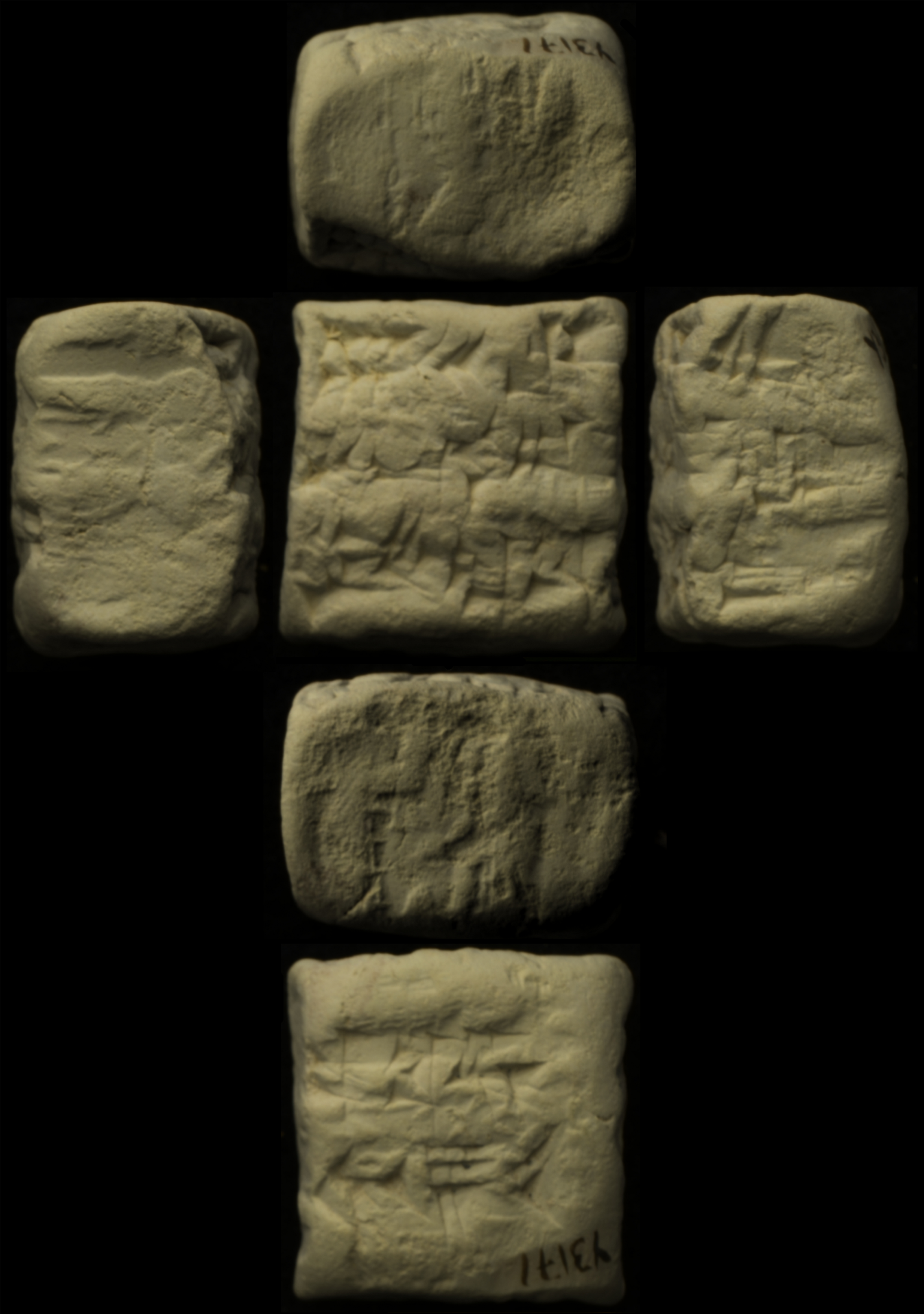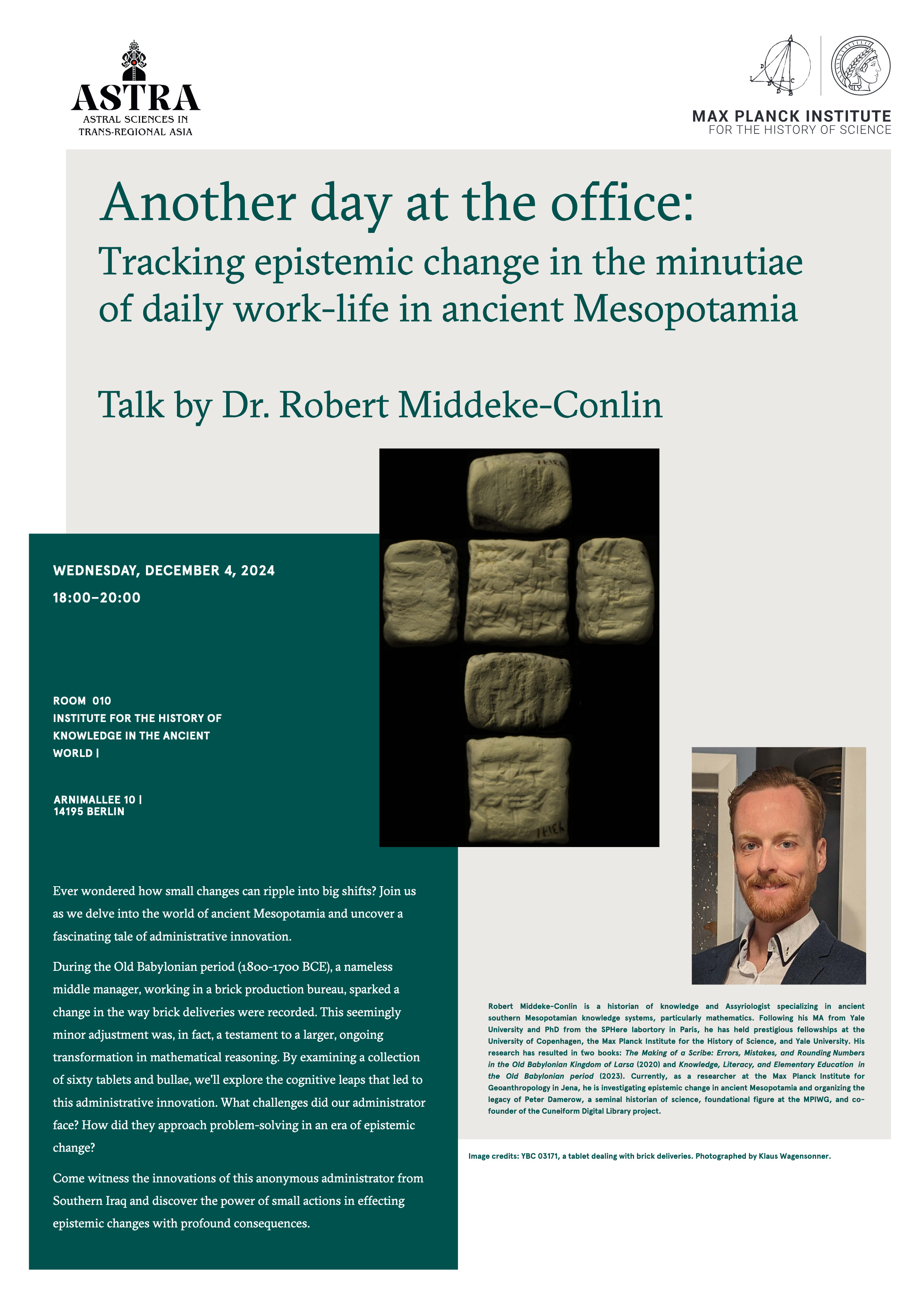Dec 4, 2024
Another Day at the Office: Tracking Epistemic Change in the Minutiae of Daily Work-Life in Ancient Mesopotamia
- 18:00 to 20:00
- Talk
- Max Planck Research Group (ASTRA)
- Robert Middeke-Conlin

Photographed by Klaus Wagensonner.
Ever wondered how small changes can ripple into big shifts? Join us as we delve into the world of ancient Mesopotamia and uncover a fascinating tale of administrative
innovation.
During the Old Babylonian period (1800–1700 BCE), a nameless middle manager, working in a brick production bureau, sparked a change in the way brick deliveries were recorded. This seemingly minor adjustment was, in fact, a testament to a larger, ongoing transformation in mathematical reasoning. By examining a collection of sixty tablets and bullae, we'll explore the cognitive leaps that led to this administrative innovation. What challenges did our administrator face? How did they approach problem-solving in an era of epistemic change?
Come witness the innovations of this anonymous administrator from Southern Iraq and discover the power of small actions in effecting epistemic changes with profound consequences.
Speaker's Biography

Contact and Registration
This event event will take place in person and is open to both MPIWG members and interested members from the public.
About This Series
The Institute for the History of Knowledge in the Ancient World and the
ERC-project “ZODIAC - Ancient Astral Science in Transformation” Annual Colloquium Series, in association with the Max-Planck Research Group
Astral Science in Trans-Regional Asia.
Every Wednesday, 18:00–20:00, see:
https://www.geschkult.fu-berlin.de/en/e/wissensgeschichte/colloquium/index.html

